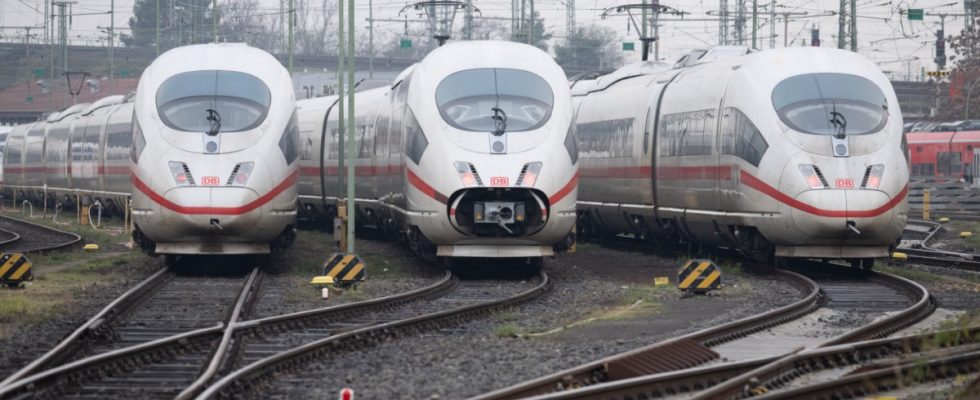The traffic light coalition has agreed on changes to the law so that the partially ailing rail network can be renovated more comprehensively and more quickly. This should be an important component in ensuring that trains run more punctually. SPD parliamentary group deputy leader Detlef Müller said on Monday that the reform was crucial for the renovation of important sections of the route starting in the summer. Julia Verlinden, deputy chairwoman of the Green parliamentary group, said the coalition was clearing the way for the renovation of the most important routes. Her FDP colleague Carina Konrad said that central steps were being taken so that delays caused by disruptions could quickly become a thing of the past. A general renovation of 40 particularly stressed routes is planned by 2030. It starts with the Riedbahn between Frankfurt and Mannheim, which will be closed for five months from mid-July and completely renovated.
The traffic light factions specifically agreed on a change to the Federal Railway Expansion Act. This was preceded by lengthy negotiations between the government factions. The cabinet had already introduced a bill in June to promote investment in rail. The federal government should be given more leeway in financing. The law is intended to remove obstacles so that he can also contribute to the costs of maintenance and repair – and not just to construction projects. The SPD politician Müller said that the agreement would lay the foundation for the funds to be used more quickly and with less bureaucracy. “The reform initiates a paradigm shift in that the federal government will invest directly in the repair of the rail network in the future. This will make it possible to significantly improve our rail network.” Changes to the parliamentary procedure should also simplify investment opportunities for noise protection, accessibility and measures such as additional switches and passing tracks.
Replace broken switches more quickly
Federal Transport Minister Volker Wissing (FDP) welcomed the agreement. “The network must be restored as quickly as possible so that rail can finally fully develop its impact as a climate-friendly mode of transport.” Instead of lengthy discussions about cost shares, measures could be implemented faster, more optimized and bundled in the future. “In this way, the network can be quickly renovated and modernized.”
Konrad said that after “decades of doing nothing,” the traffic light brings about necessary measures. “The rail infrastructure is in a deplorable condition. With additional improvements to the draft bill through the parliamentary process, we will speed up minor repairs. Replacing broken switches will be less bureaucratic and therefore faster.” Verlinden said that the Greens had anchored an important demand point of the Rail Acceleration Commission, which would lead to a significant acceleration of planning and a reduction in bureaucracy.
“In Germany it will now be much easier to make train traffic on the existing rail network more fluid and therefore more reliable and punctual again.” Millions of rail passengers would benefit from the faster installation of new switches and passing tracks. “Because your train will be able to avoid delayed trains and construction sites more easily in the future.” The acceleration commission set up by the government with representatives from the industry presented extensive proposals at the end of 2022.
The coalition originally promised Deutsche Bahn an additional 45 billion euros to make the infrastructure fit in the coming years. However, a good third of them are not yet secured. The background is also the need to make savings as a result of a ruling by the Federal Constitutional Court. Verlinden said that the agreed legal changes would also provide better management and control of the new non-profit company InfraGo and network development. “The Ministry of Transport now has a clear mandate to put rail financing on a new footing with the Modern Rail Act by the middle of the year. The uncertainties surrounding financing must be a thing of the past.” The Acceleration Commission had proposed two funds that should work over several years – and not from financial year to financial year: one for the renovation of the existing network and an expansion and modernization fund.

